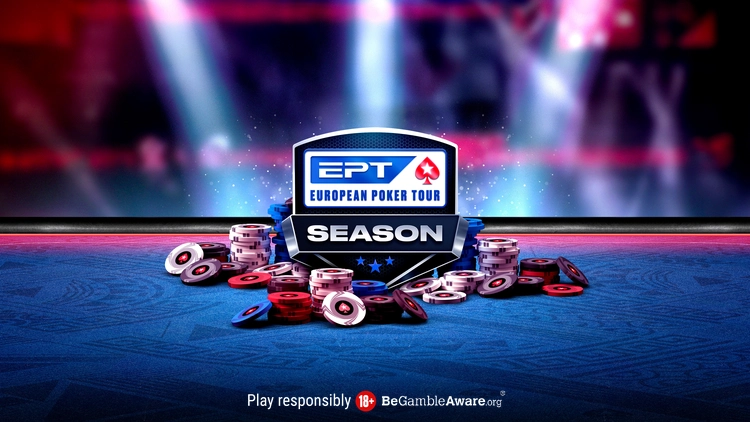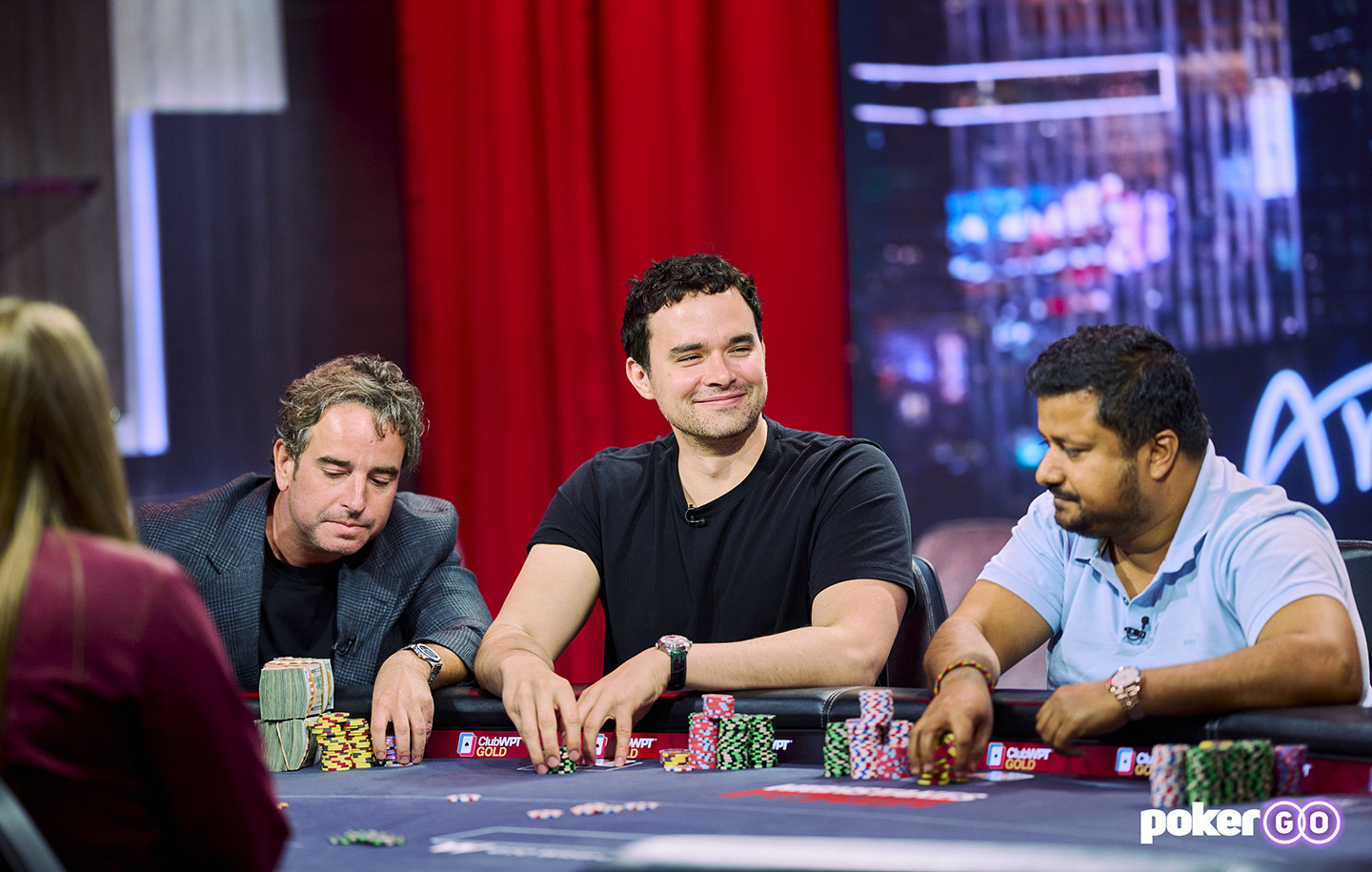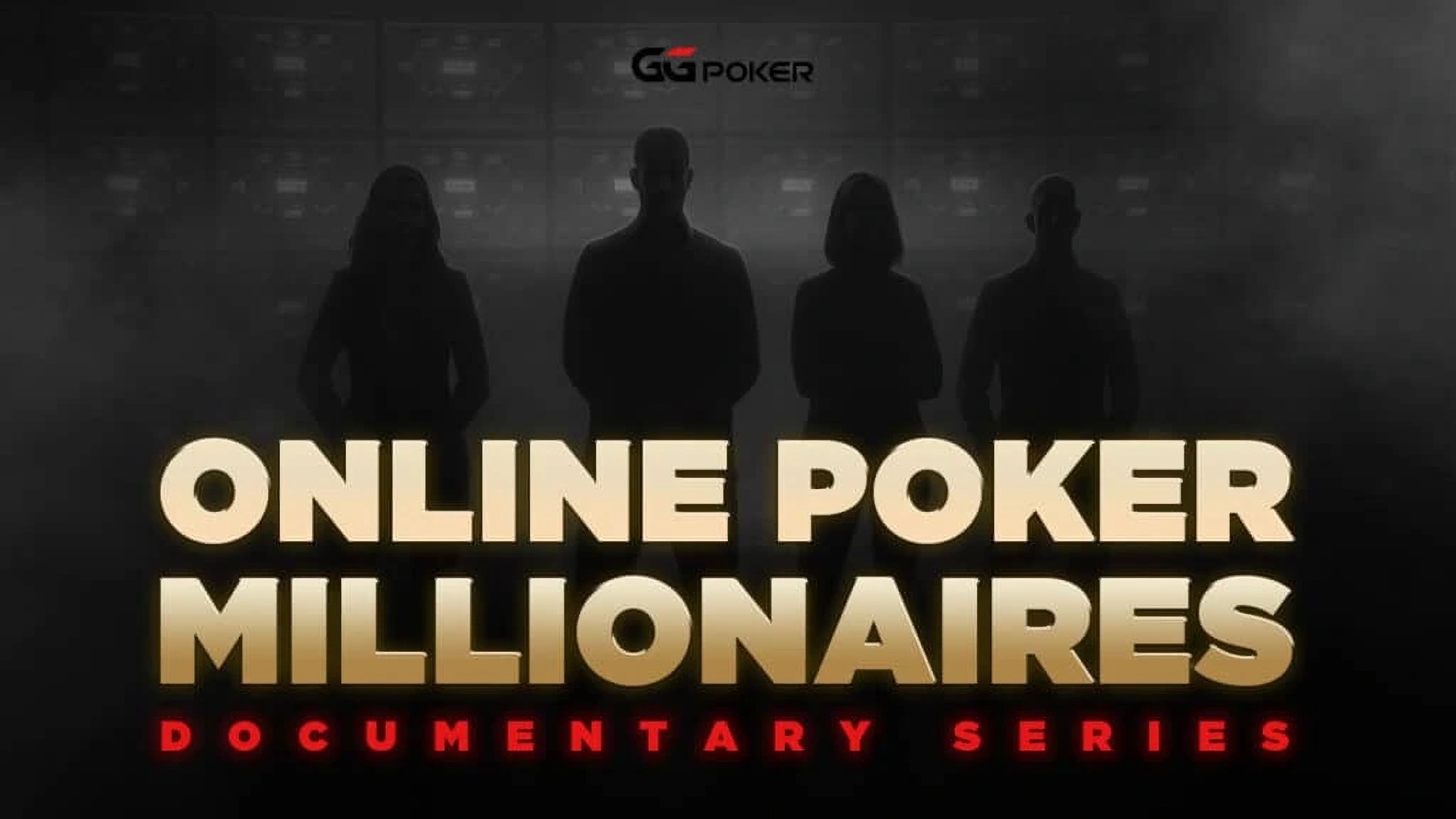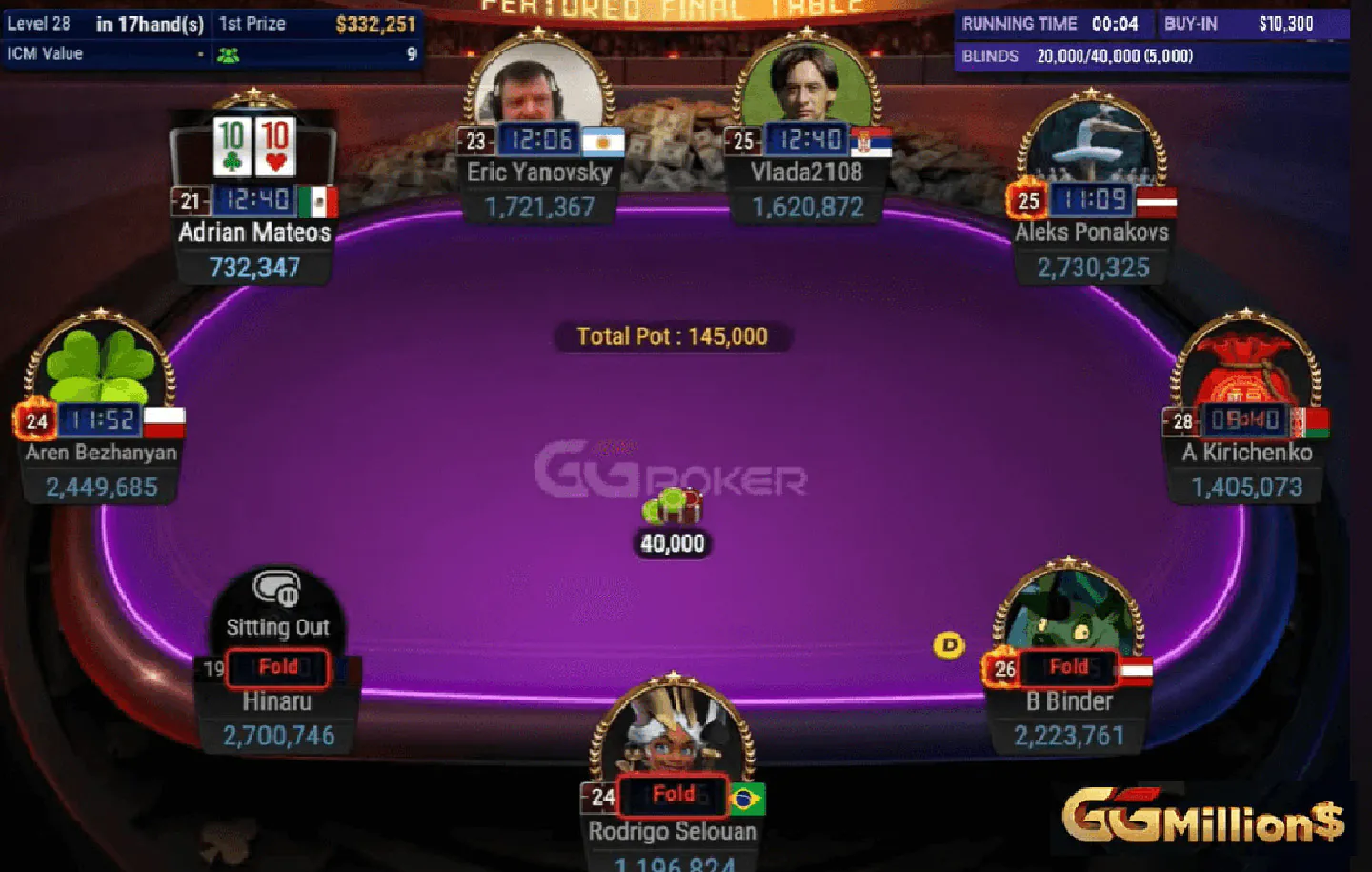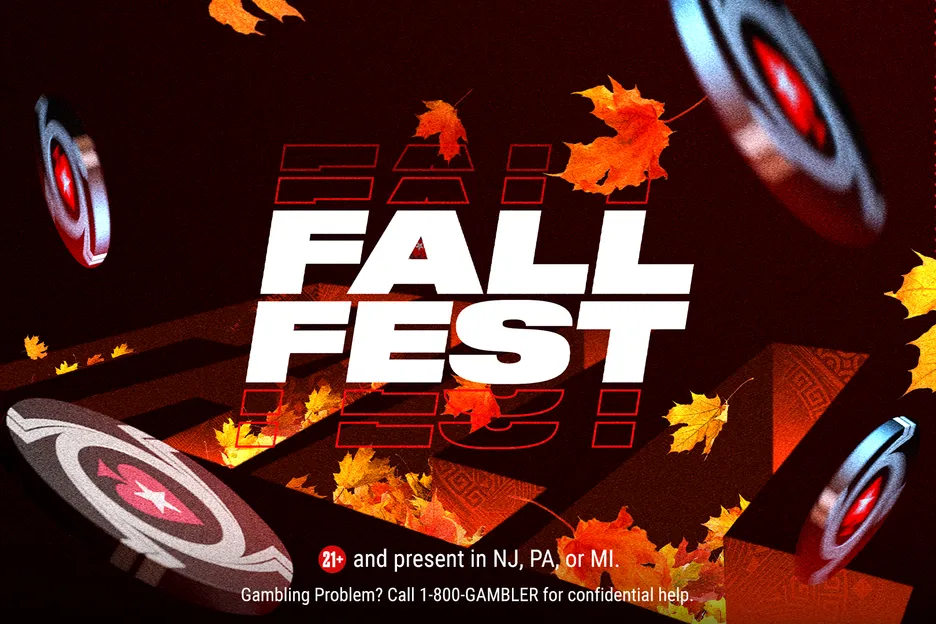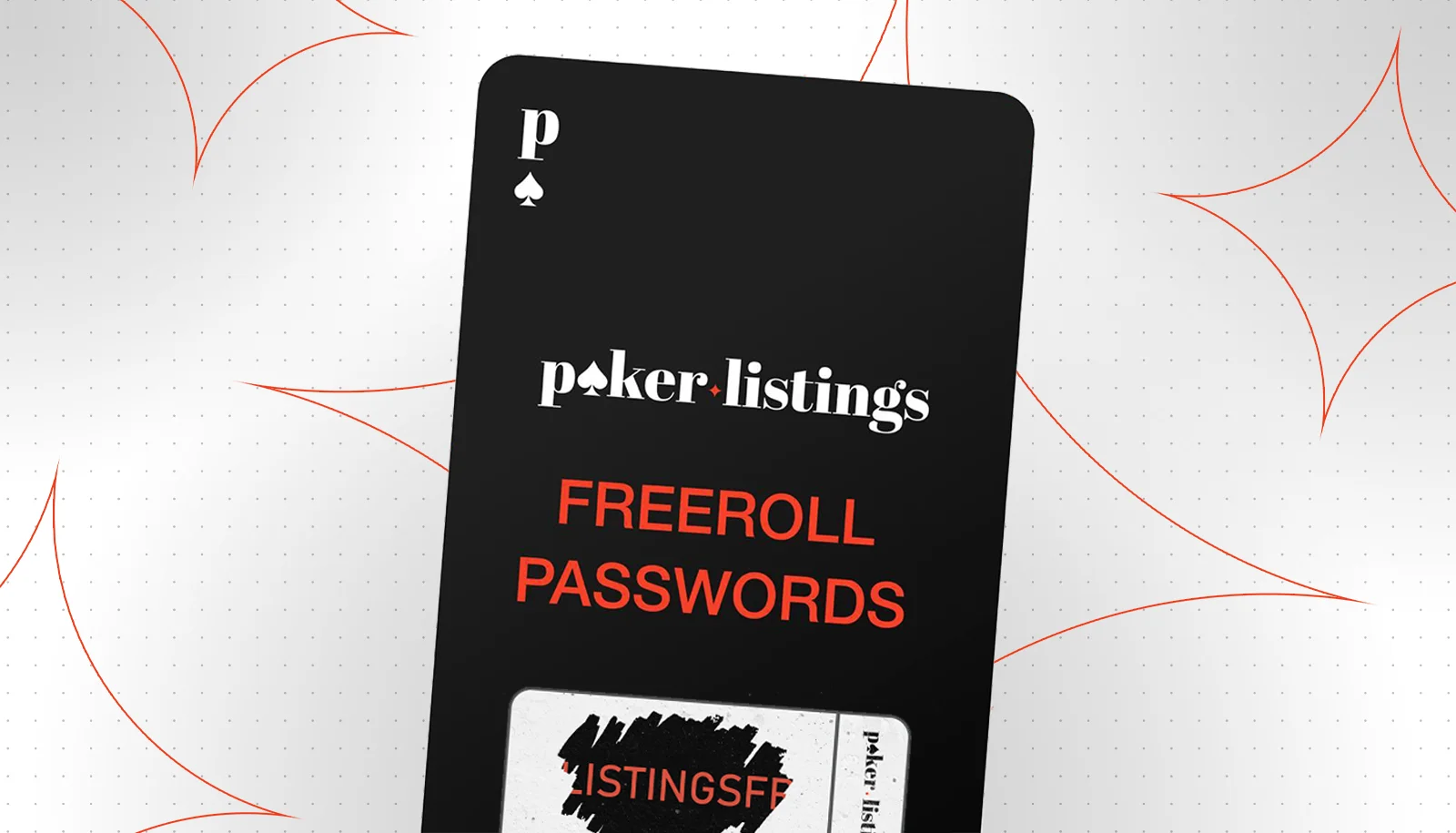Alex Theologis: “I was never into poker for the recognition or fame”
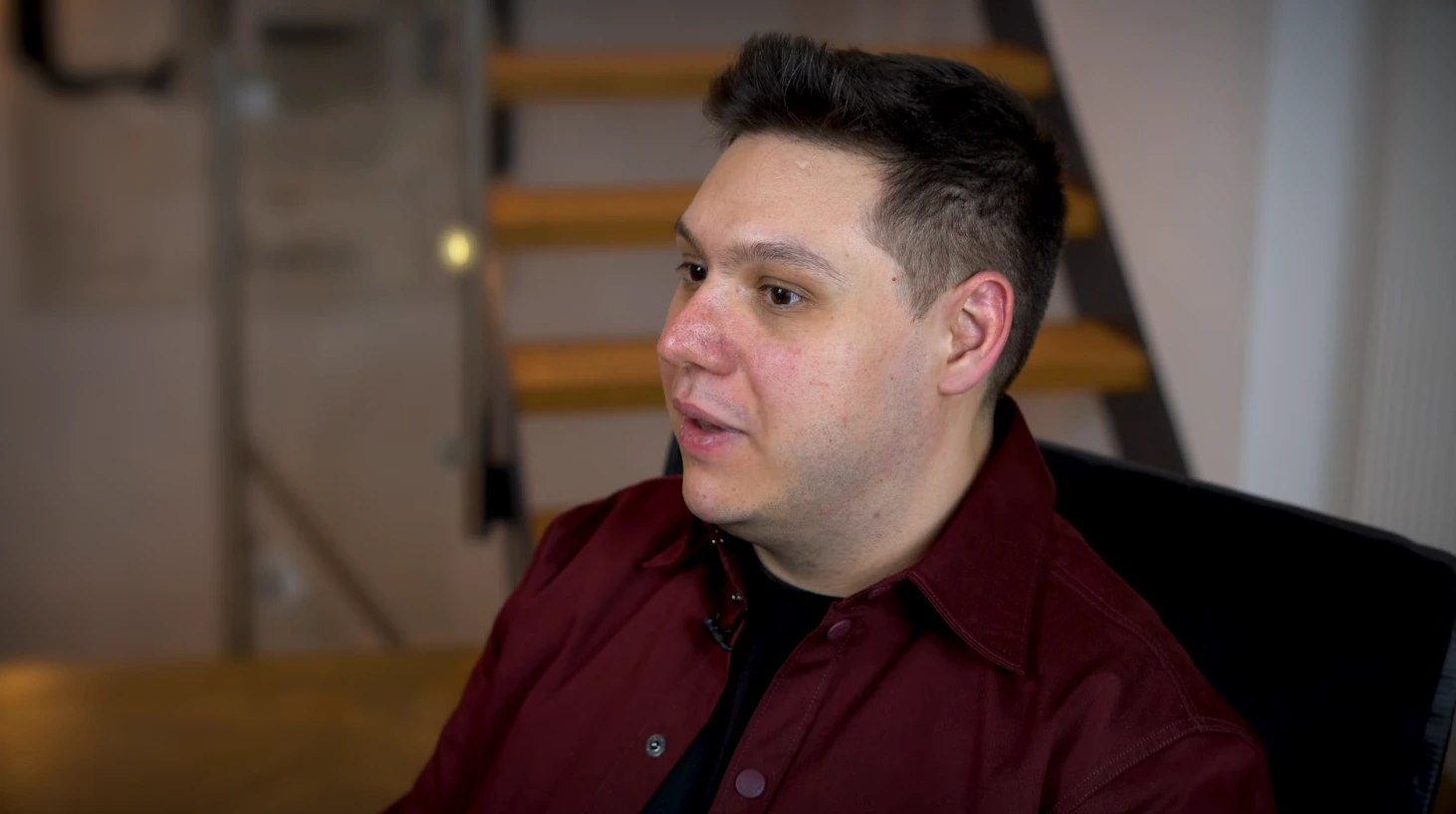
- Fact Checked by: PokerListings
- Last updated on: November 14, 2025 · 9 minutes to read
What goes on in the mind of an online crusher hiding behind the monitor? Only a select few know — and one of them is Alex Theologis, the hero of the first episode of Online Poker Millionaires docuseries made by PokerFILMS & GGPoker.
On November 13th, 2025, Alex showed up on Reddit to participate in the Ask Me Anything thread. Daniel Negreanu “opened” his AMA with a question about the use of randomizers by high stakes live tournament players and Alex had a lot to say:
«I think the importance of randomizing in a live tournament is less significant as you can gather more information but also play a significantly smaller number of hands. When randomizing a decision it means that both options are pretty much the same EV, so any sort of hint you may have (sizing tell, live read, player tendency etc) will greatly sway the decision to one of the 2 options.
But then, even readless, it will be much tougher to get exploited if you always lean one way in a live setting as the number of times you will play this spot will be very limited (for example, on a mixed sizing c-bet board, if you never put strong hands in the small sizing, it will be easier to notice online with thousands of hands played and more showdowns than live, where you don’t even have to showdown a bunch of times you lose).
That said, I still think randomizing will be useful when you have no real reason to deviate, especially on spots that are quite common (for example 3betting AJ in an ICM spot without any reads on the opponent. If the solver is mixing these hands and you always take the 3bet option, it will be easier to spot as FTs are televised and opens a door for being very exploitable).»
Starting with this answer, we’re sharing the juiciest part of Alex’s AMA with you in the form of an interview, divided into three topics for convenience. Enjoy!
Personal Questions on Poker Career and Life
Q: Have you had any ‘aha’ breakthrough moments of understanding when playing, studying or discussing poker?
While I’d say my progress has been incremental, there have certainly been many, many “Aha!” moments in my career.
Alex Theologis: Perhaps the biggest one that comes to mind was.. in 2017 I want to say, before I joined BitB (a stable I was in for 18 months), when I had my HH reviewed by the 3 owners (pads, european, elmerix).
These guys were so far ahead of me at the time and I had no idea! So with charts and solvers being less accessible back then, hearing that I could defend the big blind with J5s against a HJ RFI was a real eye opener, silly as it may sound.
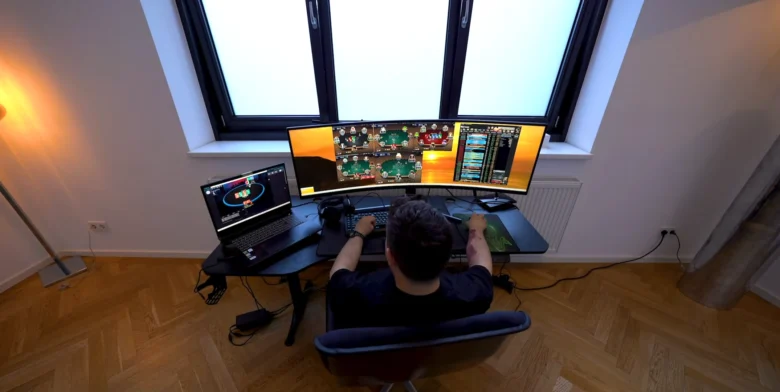
Q: Do you carry resentment that your specific path in poker goes mostly without recognition? The eyeballs go towards the live poker achievers or the content creators. While someone carving out elite online EV like yourself is barely recognized. Or are you just happy to make your money and fly under the radar?
Alex Theologis: Resentment, definitely not.
I was never into poker for the recognition or fame.
If it ends up coming along, then great. I enjoy the competition and the compensation, but being recognized/famous etc is not necessarily something I set out to do, so I definitely have no negative feelings about someone that did.
Q: If you would have to start from scratch again, would you still pursue poker or something else? Why?
Alex Theologis: Knowing how things turned out I would say yes, but potentially change some things, especially when it comes to health/fitness. When I started playing poker professionally, I could have never imagined how far I would go, so I’m definitely grateful for that and I’d make the same choice agan and again.
Q: What is the most valuable heuristic of having elite players along with your journey?
Most valuable heuristic: understanding you are dumb and there are smarter people than you out there.
Alex Theologis: It’s also nice to draw motivation from them and learn from their work ethic. Of course, discussing strategy and sharing hands/thoughts is also very beneficial.
Q: In the world of hyper-volume, multi-tabling, when you isolate yourself and hunker down for a long session, are there any habits or routines you employ to help maintain your clarity/focus and stave off drifting into full autopilot?
Alex Theologis: I wouldn’t say I ever struggled with this issue. The constant need for complex decision making and my perfectionism/competitive nature always keeps me on my feet.
Q: What’s your most memorable poker hand ever?
Alex Theologis: In all honesty, nothing comes to mind when reading this question. I can recall a bunch of hands but most of them are fairly recent, so there is nothing that really comes to mind from the past. I generally try to disconnect my feelings from results, therefore I don’t really remember a big bluff or a big call, or a big suck-out, etc.
The main old hand that comes to mind is from a deep ruin in the Nightly 162$ from 10+ years ago, which was my highest buyin at the time and was a big chance to save my Sunday.
I managed to missclick jam KJo instead of minraising (was using hotkeys at the time — last time I used them, haha) and got called by JJ and KK. I did not win, but I found it both upsetting but also hilarious.
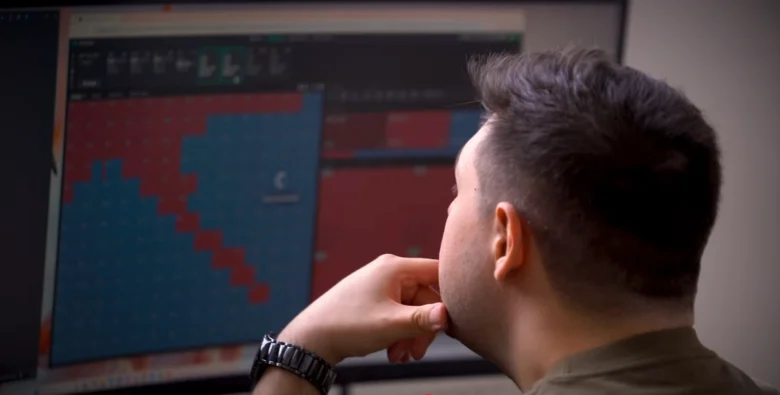
Q: You joined the high stakes smoothly boosting your bankroll etc or you were a reg at a certain stake and had a big score that helped you go to the higher stakes?
Alex Theologis: Long story short, I was struggling transitioning from mid to higher stakes and that is when I joined BitB (early 2018?). In these 18 months I was able to both build a bankroll and improve as a player, and was able to play high stakes on my own afterwards. So I think the answer is somewhere inbetween! No real bink that elevated my bankroll, but also it didn’t take a very long time either.
General Thoughts on High Stakes and Poker in General
Q: How should a serious part-time player with a solid income outside of poker think about bankroll management and shot-taking differently from a full-time pro?
The main difference is the ability to replenish bankroll outside of poker earnings.
Alex Theologis: For a professional, very often poker bankroll = life bankroll, so being very cautious with management is crucial to avoid going broke. If there is a solid income outside of poker, then I think it makes sense to come up with a % of your income you are comfortable dedicating to poker and plan your entries and shot-taking accordingly.
Q: Is the edge that big between reg players at the high stakes?
The magic of it is that the answer is unclear.
Alex Theologis: We had a discussion at the $100k HR in Malta about what people’s perceived ROI was in that tournament, and based on the responses, some people would have to be losing over 40-50% ROI in order for the numbers to add up – which was certainly not the case.
So some people definitely overestimate their abilities (hey, could be myself too!) which is what keeps a lot of the reggier games running. Short answer: no one knows, each pro has their own opinion on the situation and act accordingly.
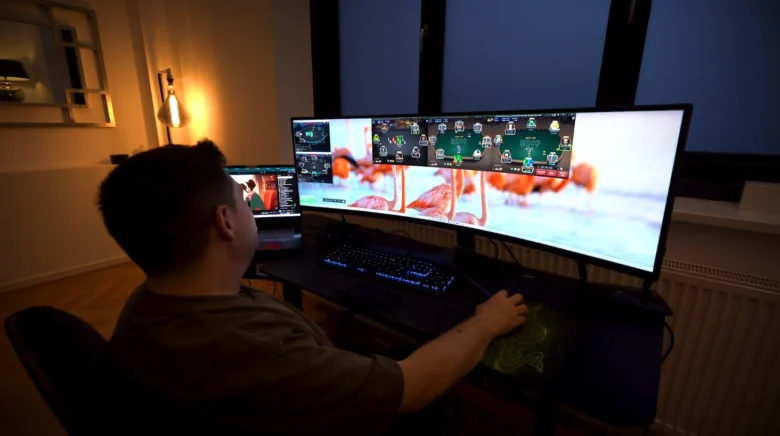
Q: KO, PKO and Mystery Bounty MTTs are becoming more common both online and live. How has this changed how you approach MTTs and how do you see MTT formats developing in the future?
Alex Theologis: For me personally, I was always very excited for PKOs so not too drastic changes, but overall, I think it is important to dedicate more study time to the specifics of bounty MTTs as they are becoming a bigger and bigger portion of the schedule.
As for future MTT formats, it looks like the more gambley oriented formats are very popular with recreational players, like the mystery bounties, so I’d expect to see more similar formats being developed.
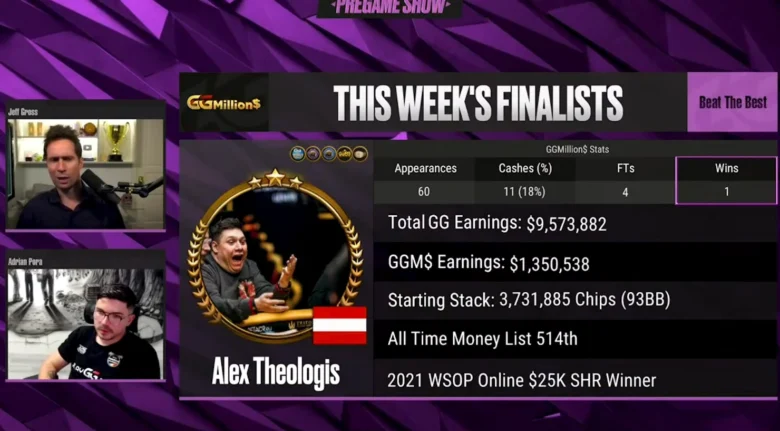
Q: What’s a format of poker you really struggle with? Do you have a desire to master lots of formats or are you happy to concentrate on becoming best in class at one?
Alex Theologis: Anything with more than 2 cards that is not a tournament. Honestly, I feel like I still have so much to learn in MTTs that I don’t see myself dabbling into other formats anytime soon.
Q: If someone has the roll to play any tournament in the world on their own but not the skills, what is the fastest and most efficient way of getting to the top?
I think it’s important to realize there is no magic shortcut and it’s a very long journey.
Alex Theologis: Even people who have been at the top level for a long time are still learning new things every day. After mastering the fundamentals, then getting a good coach could be a good shortcut, as a lot of the noise would go away and you’d have a better direction of what to study.
Some Tips & Advice for Players
Q: What are the biggest mistakes people make at low-mid stakes live and online and what adjustments would you recommend?
I think one of the biggest mistakes I see is focusing too much on details, or advanced/obscure topics while still lacking the fundamentals.
Alex Theologis: Knowing how to play the most basic spots will be way more significant for your EV than studying and finding some obscure check-raise jam on the river. So being very good at your preflop ranges, c-bet strategies, turn barrels, etc. can go a very long way.
Q: What do you recommend to a new player who wants to start to analyze their last games? How do you document / do that?
Alex Theologis: Most poker sites allow you to download your hand histories, but I also think recording your sessions (with OBS for example) can also be a great idea and something I’ve done/am still doing. It helps spotting mistakes you didn’t know you were making!
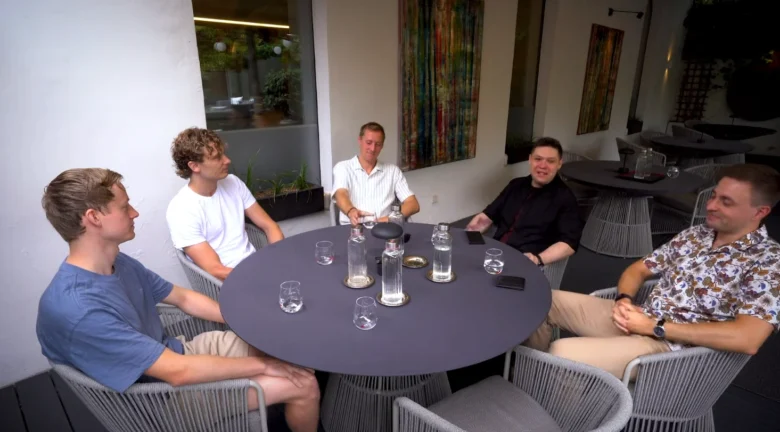
Q: What do you think is the most efficient way to learn a solid strategy you can fall back on in any spot, even situations where you haven’t specifically studied for them?
Alex Theologis: I’ll say — just having very strong fundamentals. Understanding how the game works at a basic level (ranges, pot odds, combos etc) and having very strong knowledge of the baseline strategies can help a lot maneuvering unknown spots, as you can just extrapolate from what you know.
That said, I still tag a lot of hands every time I play to review after — probably over 30 hands per session, both ChipEV and ICM.
Q: What is one habit that you think is underrated but essential for long-term success in poker?
If I had to pick one, I’d say being critical of yourself more than critical of others.
Alex Theologis: Understanding when you make a mistake or underperform and working at fixing it (i.e. be mad at yourself for bluffing and not at your opponent for calling J high).
Q: How important do you think for player development and growth is it to get into CFP or staked?
Alex Theologis: It’s hard to speak in general terms, but for me it was extremely helpful.
Being surrounded by like-minded individuals who are hungry to improve while being offered high level coaching can be invaluable for one’s progress. It is important to find the correct CFP though!
I also know of people who have regretted joining stables/cfps as it didnt work for them or the stable/cfp was not a right choice. So, I don’t think there is a clear answer that fits everyone here, it really depends on the player and the CFP/stable.


-
Stake.US Poker4.3
- Rakeback 5%
- $55 Stake Cash + 260K Gold Coins
T&Cs Apply | Play Responsibly | GambleAware
18+ | Play Responsibly | T&C Apply
-
Appeak Poker4.1
- 1,000 Chips Daily
- FREE 5,000 Chips
T&Cs Apply | Play Responsibly | GambleAware
T&Cs Apply | Play Responsibly | GambleAware
-
CoinPoker4.1
- 33% Weekly
- 150% up to 2000$
T&Cs Apply | Play Responsibly | GambleAware
+18 / T & C apply / Play responsible
-
- 2,500 Gold Coins + 0.50 Sweeps Coins
T&Cs Apply | Play Responsibly | GambleAware
18+ | Play Responsibly | T&C Apply
-
WSOP.com4.3
- Up to 70%
- 100% up to $1000
T&Cs Apply | Play Responsibly | GambleAware
T&Cs Apply | Play Responsibly | GambleAware


